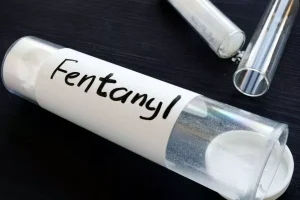
Of course, digestive trouble is a leading symptom of many health conditions, so you’ll want to consult your doc before diagnosing yourself with, say, a tequila allergy. But, if it happens after drinking, without any other weird lifestyle or dietary changes, there’s a high probability that the symptoms are linked to those wine spritzers. You’ll have those same symptoms and a more intense reaction, wheezing, difficulty swallowing, low blood pressure, and heart palpitations, he says.

Hodgkin’s lymphoma is a type of cancer that can affect your lymphatic alcohol rehab system. White wine tends to contain higher levels of sulfites than red wine and beer. It’s also found in many foods and beverages, especially fermented products.
For example, aged cheese, smoked meats, sauerkraut, wine, and beer tend to be high in histamines. What we understand as a ‘hangover’ is made up of a particular set of symptoms – usually a thumping headache, nausea, intense thirst, tiredness and brain fog. This is all happens as a result of drinking alcohol, or more specifically, the series of bodily processes it sets in motion. Another reason why alcohol can cause wheezing is that it not only contains histamines but also stimulates the body to release excess histamines, causing an inflammatory response. When this inflammation occurs in the airway, patients can experience wheezing and shortness of breath. When this blood-brain barrier isn’t protected as it should be, the brain is more susceptible to headache-inducing triggers.
Other studies have found that egg whites and gelatin are often used in the filtration processing of wine. The amount of alcohol consumed does not necessarily correlate with the likelihood of sneezing. Some individuals may experience sneezing even after consuming small amounts. Normally your body produces an enzyme called diamine oxidase (DAO) to break histamine down.
When you drink alcohol, it’s absorbed into your bloodstream and quickly travels to your brain. One is that alcohol dilates blood vessels in the nose, which can cause irritation and lead to sneezing. Research shows that around 8% of people experience symptoms like nasal congestion, flushed skin, or even headaches while drinking wine. If any of this sounds familiar to you, you might be sensitive to one of wine’s many components. The good news is that once you identify the triggers, there are ways to reduce or even prevent these reactions, without having to ditch wine altogether.
Your brain adapts to alcohol over time and can become less sensitive to its effects. Are you wondering whether your drinking is on the high side of normal or if it’s crossed the line sneezing after drinking alcohol into a problem? If any of the following scenarios seem familar, it might be time to make some changes. If you get gustatory rhinitis, there are many treatments and management methods to choose from. If you have ever experienced sneezing after consuming alcohol, you might be wondering why this peculiar phenomenon occurs.
If your symptoms are caused by sinus problems, you may need to see an allergist or immunologist for tests and treatments. If you’re allergic to alcohol, you may experience hives, itching, swelling, difficulty breathing, and wheezing. Incomplete absorption of alcohol by the body could be one reason why you get stuffy nose on drinking alcohol.